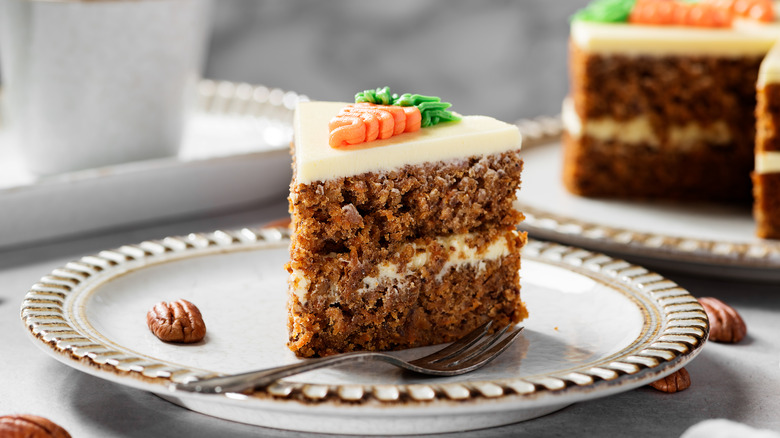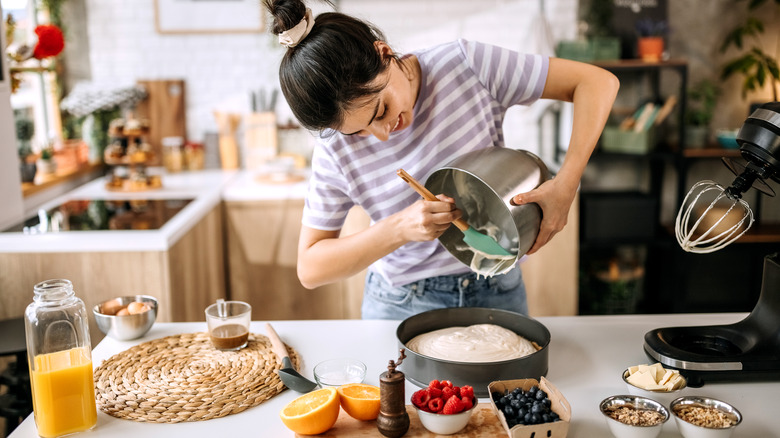The Baking Powder Mistake That Makes Cake Taste Like Chemicals
For home bakers, creating the perfect cake is often a balancing act of ingredients and techniques. Using baking powder (a chemical leavening agent) often becomes tricky. How much is enough to leaven dense, oil-based cakes like carrot cake? Sometimes, we end up using too much baking powder to help this type of cake rise, and this mistake can unfortunately make them taste bitter or like chemicals.
The root of this problem lies in the difference between using oil versus butter when baking cakes. Lighter, fluffier cakes call for softened butter and sugar that have been creamed together. This process introduces air into the batter. When breaking down the baking science, the sugar crystals cut into the softened butter, creating tiny air pockets that expand in the hot oven. This results in a fluffy, soft cake that's been mechanically leavened versus chemically.
On the other hand, denser, oil-based cakes, like zucchini bread, don't involve creaming butter with sugar. And no matter how much you whisk oil with sugar, you won't introduce air or create pockets. Hence, bakers often use too much baking powder to make their oil-based cakes rise. To help you avoid this mistake, here are two simple solutions.
How to avoid using too much baking powder when making cakes
First, to avoid using too much baking powder, bakers can employ this mixing technique: Use those arm muscles and whisk eggs and sugar together until the mixture is paler and fluffy. This helps incorporate air into the batter, providing the mechanical leavening that oil-based cakes often miss. Then, mix in the oil slowly. Note that baking powder can still be used but in a smaller amount.
A second solution to help oil-based cakes rise involves the adoption of the tang mian technique. Often used in Asian baking, this approach parallels the tangzhong method for milk bread, which involves mixing flour and water to form a paste. For the tang mian approach, oil is heated and mixed with flour to create a roux-like mixture before incorporating other ingredients. This process allows the batter to form less gluten and absorb more liquid, resulting in a softer, tender cake.
These techniques may apply to most types of oil-based cakes. Whether it's a gourmet olive oil cake or a comforting chocolate zucchini cake, mindful mixing techniques can ensure that you get a well-leavened, moist, and flavorful cake that's free from any chemical aftertaste.

